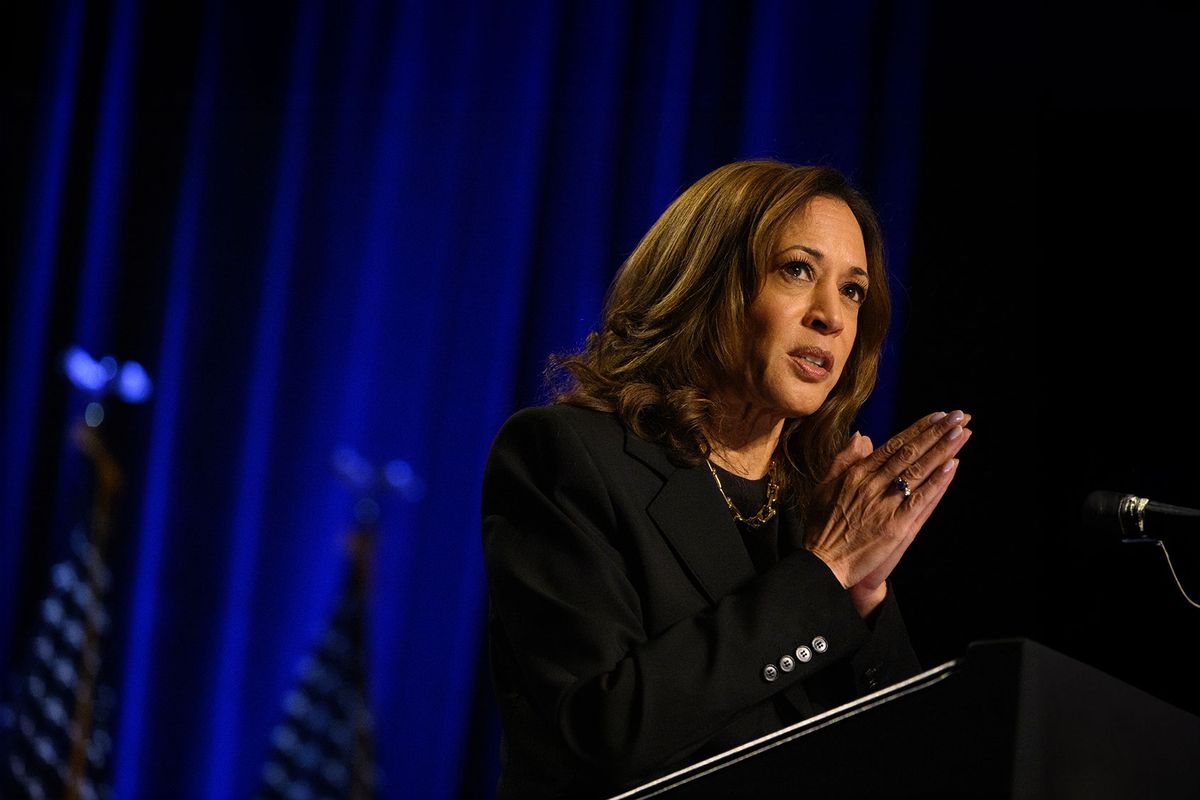Vice President Kamala Harris sat down with MSNBC host Stephanie Ruhle on Wednesday to discuss her economic agenda, choosing relatively friendly terrain (much like former President Donald Trump on Fox News) to deliver the case for a Harris-Walz administration and neutralize criticism that she hasn't made enough unscripted media appearances.
Presenting herself as a champion of the middle class and Trump as a friend of moneyed interests, Harris provided the broad strokes of what she would do to level the playing field and help Americans not only "get by" but also "get ahead." In doing so, she chose to stay firmly on message rather than indulge in the grievance-filled tangents preferred by her Republican rival. At the same time, she also refrained from making any deep forays into policy details or explanations for how she would pass her agenda through Congress if the GOP controls the House or Senate.
At the centerpiece of Harris' agenda, as laid out Wednesday night, is a proposal to pay for increased social spending by raising taxes on the country's wealthiest earners and corporations — many of whom pay a lower rate than the working class — while cutting taxes or offering tax credits to 100 million people who earn less than $400,000 a year. Far from driving big business and jobs away, Harris told Ruhle, she would work closely with private sector leaders "who are actually part of the engine of America's economy" and "agree that people should pay their fair share."
"They also agree that, when we look at a plan such as mine, that is about investing in the middle class, investing in new industries, investing in bringing down costs, investing in entrepreneurs like small businesses, that the overall economy is stronger and everyone benefits," Harris said.
Indeed, analysts at Goldman Sachs and Moody's, a bond credit ratings business, have concluded that Harris' plans would grow the economy while Trump would exacerbate inflation and invite a recession. To ensure that most Americans are benefiting from a revived economy, Harris reiterated proposals she's made on the campaign trail to go after price-gouging companies, boost small businesses and struggling families with tax credits and create three million new housing units by the end of her first term.
But while Harris promised to cut bureaucratic red tape to build more housing, she hasn't explained how she would use federal power to overcome local governments who jealously guard their privileges to regulate zoning laws and maintain the sanctity of wealthy suburban neighborhoods. Nor did she specify how she would support union labor or protect unions against GOP proposals, beyond a broad promise to "stand by the importance of being able to join a union."
We need your help to stay independent
On other issues like tax rates and manufacturing policy, she referenced plans that have been written out in more detail by her campaign or endorsed policies pursued by President Joe Biden, who has given officials like Federal Trade Commission Chair Lina Khan free rein to pursue antitrust lawsuits against exploitative corporations. While Ruhle pointed out that both Biden and Trump have implemented tariffs that have been criticized for stunting economic growth, Harris drew a distinction between Biden's "limited tariffs" to protect American jobs and Trump's "not very serious" idea of "tariffs across the board."
On the campaign trail, Harris has mocked Trump for using "concepts of a plan" on healthcare as a way of admitting he doesn't have a plan at all. Nevertheless, a slightly larger share of voters perceive Trump as stronger on the economy than Harris, who like Biden has appeared to struggle with reconciling the message that the economy is recovering under Democratic leadership with the imperative to empower and raise the living standards of working Americans who feel left behind.
Harris declined to directly answer Ruhle's question about the possibility that Republicans, should they control one or both houses of Congress in 2025, might stymie many of her proposals. Democratic worries have become especially acute in recent weeks as Sen. Jon Tester, D-Mont., falls behind his GOP challenger in the polls. Unless Democrats can pick up a seat in red-shaded territory like Texas or Florida to offset potential losses in Montana and West Virginia, the Senate will almost certainly fall to a GOP majority.
Ruhle did not press Harris further on Congress, but come January 2025, the now-vice president might have more hostile faces across the table from her when it comes time to selling her agenda.
Read more
about the 2024 campaign



Shares